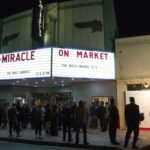Great Leaders. Leadership is an extremely important commitment. That is why there are so few truly great leaders on the planet at any given time. Great leadership hinges on a dedication and commitment to learning — the type of learning that demands a willingness to traverse the divide between success and failure. Leadership provokes thoughtfulness and contemplation so that the knowledge you have acquired can be successfully interpreted and passed forward in service to inspire and uplift others.
When I was named one of the top executive coaches in the country in the field of leadership training, the first thing I did was up my own ante on learning more about myself, the world of which I am a part and what exceptional leadership means. I did not allow my ego to fool me into thinking that I, by any stretch of the imagination, knew it all.
Thus, it is with great humility and gratitude that I accepted the invitation of LOHAS (Lifestyles of Health and Sustainability) to speak with some of the world’s top leaders and discover the keys to their individual success: Dan Millman, best-selling author of „Way of the Peaceful Warrior“ and „The Four Purposes of Life;“ Casey Sheahan, CEO of Patagonia; Gretchen Bleiler, professional snowboarder and Olympic silver medalist; Ted Ning, director of LOHAS; and Freddie Ravel, former keyboardist from Santana.
Casey, Dan, Gretchen, Freddie and Ted — in your experience, what choices have you made professionally or personally that provided the most growth-knowledge that undeniably lead to your greater success?
Casey Sheahan:
There have been two insights that have propelled Patagonia forward at a faster pace in the last three to four years. First, is the awareness that inspiration is a more powerful leadership tool than motivation because people will do anything for love but can be paralyzed by fear. Second, is the powerful effect of intention versus traditional metrics based goal-setting. If you can create a strong vision of how you want your company to look and feel far into the future, this is like looking at a three-dimensional satellite photo of the planet showing where you want to go, as opposed to a two-dimensional roadmap. Metrics make you focus on short-term outcomes; vision causes you to focus on the process and behaviours that really get you there.
In my talk I will explain how Patagonia’s success has sprung from a series of transformative moments in the work and home lives of its leadership team — from company owners, Yvon and Malinda Chouinard, to myself. I will speak to the challenges and opportunities I face in running one of the most socially responsible companies in the world. Patagonia’s mission and values have proven legendary in their power to effect positive change in modern apparel manufacturing. As a side benefit, 1 percent of Patagonia’s sales are donated to small activist groups working to preserve the global environment. But for all the company’s financial and repetitional success, I intend to show that the company’s growth accelerated even faster when it brought total awareness to the full spectrum of its real-world impacts and extreme transparency to its daily operations. I believe that being green and being socially responsible are essential now, but it has become equally important to lead with mindfulness, compassion and soul. What’s true in the macrocosm for companies is true in the microcosm for its leaders. There is no global transformation possible without personal transformation.
Dan Millman:
We each make choices according to the unique timing and circumstances we meet on the mountain of life — so noting my own specific choices may not serve anyone else. As the proverb says, „Maybe the only people who profit from the experiences of others are biographers.“ But I can share this: As I point out in „The Four Purposes of Life,“ there is no such thing as a future decision; all meaningful choices are made in the moment, and they are made through action. As E.M. Forrester wrote, „How do I know what I think until I see what I do?“ Thinking about doing something is the same as not doing it. So don’t think without acting (or act without thinking). Make a choice and stand by it until you have seen clearly where it may lead. Faith is the courage to live as if everything that happens is for our highest good and learning.
Gretchen Bleiler:
When I was a senior in high school, I came to a pivotal point in my life: I could go to college like I had always planned on doing and worked so hard for, or I could take a year off and put everything I had into becoming a professional snowboarder. At the time, being a professional snowboarder was not something a lot of people took a crack at; let’s just say that route was obviously not the safe bet! I knew that I could go to school, just like all of my best friends, and live a happy life but I also knew that if I really gave it my all I could live an extraordinary life doing what I absolutely loved. A formal education is invaluable but you can also learn about the world and your place in it in other ways. The reason I choose snowboarding is because I knew that this path was my unique way and my individual gift. Every single one of us has a unique set of talents, gifts and skills and when you have the courage to pursue these no matter what or where they lead you, you will run head first into success. The key is knowing when to take that ‚leap‘ and the answer is within you always, you just have to listen and have the courage to act.
Freddie Ravel, Motivational Maestro, CEO of Tune Up To Success:
From as far back as age 5, I have been utterly fascinated with the raw power of music. By 12, I became so intrigued with the piano that I practiced eight hours a day and that singular focus laid the foundation for the blessing of a music career that has taken me all over the world. I also love to work in the business world where there is a constant search for a more sustainable paradigm — particularly by sharing music as a multi-tasking power tool for so many of our challenges today such as leadership, collaboration and time management. This has kept me in the mode of service, learning and contribution, which in turn sustains my personal and professional life. I believe that we are teachers sometimes and students ALL the time! This is especially true of becoming a father — we don’t raise our kids, they raise us! Finally, I’d say the most important choice I have made is to call my everyday intention toward living in a state of constant gratitude — when we can be in that perspective, we can see the potential of light in everything.
Ted Ning:
The choices I have made that have had the most impact tend to be the ones I did wrong.
Find the leader inside of you. It’s there!!!
In loving, Deb Robins, M.A.




